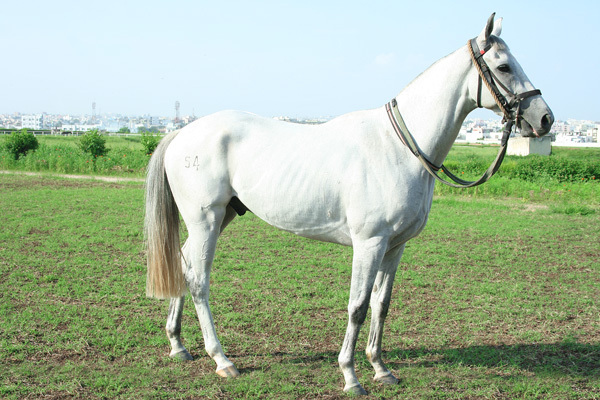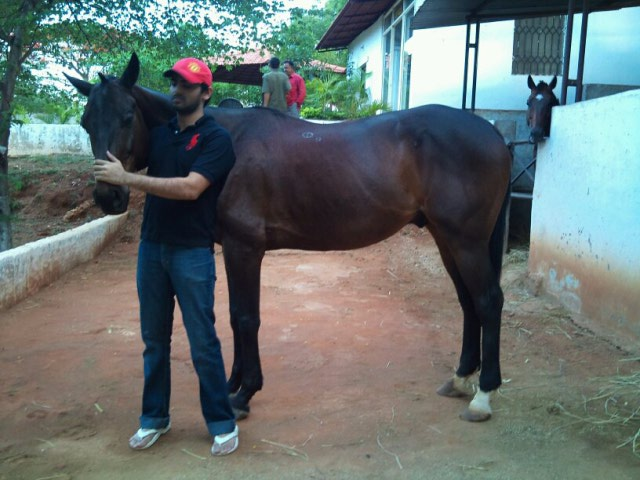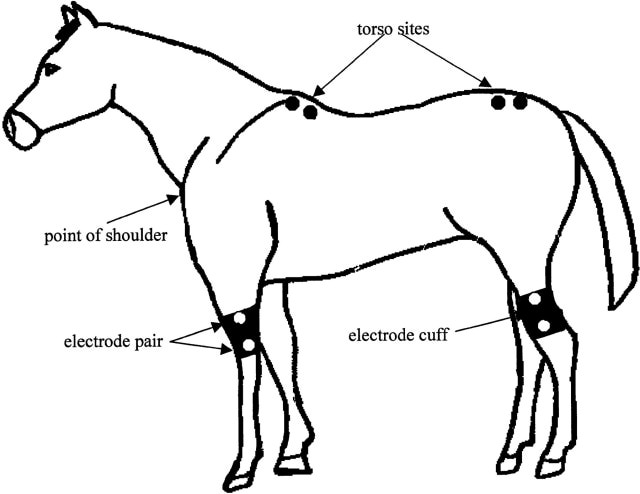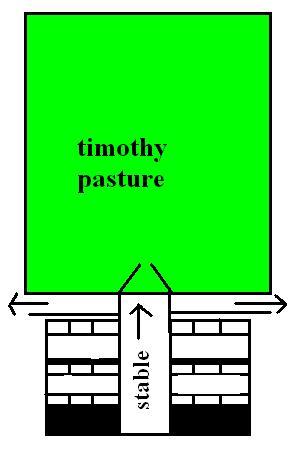QuestionI have a Tennessee walker that is a mare due in August, but since she lost her last colt I want her to gain weight for her and the colt. We are told that she is very healthy right now, but i just want to help her a little bit more and feed her some great food for her. what can be a great food for her?
AnswerHi Debbie,
Thank you for your question. Broodmare nutrition is always a challenge, and its successes or failures can have huge impacts on your breeding program. I am always a fan of calculating a horse's ration...but insist on doing so for broodmares because of its implications. I can't give you specifics for your horse without a lot of additional information but I will provide you with some guidelines and suggestions.
An older train of thought for feeding the gestating (pregnant) mare was that the most critical time for a higher plane of nutrition was the last 3-4 months. The first part of the gestation is dedicated to laying down the pattern for fetal development and that last 3-4 months went to creating fetal size...therefore you fed your mare critically during this time. Although this philosophy of fetal development holds true, the research has shown that the entire gestation is vital...for different reasons. Be cautious not to over feed during this period (which is especially the temptation for thin mares) because it will create huge foals that could cause problems during foaling. The mare will not experience the weight gain you were hoping for. You need to use those first 7-8 months for weight gain if need be, but ideally you should breed them in the body condition that you hope for them to foal in.
More recently, the focus of nutrition in early gestation has been on mineral feeding rates. Increasing the mineral (and vitamin) portion of the mare's diet can significantly reduce the risk of DODs (developmental orthopedic disorders or joint issues) in the foal later on in life.
There are a few metabolic disorders in mares that can be antagonized (or even induced) by nutrition, but the risk of which can be reduced through some careful planning. Early embryonic loss (and in more severe cases late abortions) can be caused by mycotoxins in the feed. The majority of mycotoxin toxicity comes from grain, but may also originate from hay. It is important that you feed quality feeds to avoid loosing foals. Retained placentas can be caused by a lack of protein in the diet during late gestation, or even from a calcium deficiency at parturition (foaling).
This all starts to look like a lot to balance a ration for, and you would be right in thinking that. Basically, start with good quality forage in the diet. Feed hay that not only looks like it is good, but that is also nutrient dense (you will need a hay test to determine this). Then, find yourself a good pelleted mineral to feed. Find something with a 2:1 Calcium to Phosphorous ratio and elevated Zinc and Copper levels with a 4:1 ratio...preferably with a high protein content. In the last 4 months of gestation, switch to a complete feed designed specifically for mares in gestation. Most reputable feed companies will manufacture what you need. If you let me know what feed company you would like to deal with, I could make some suggestions. If you were in Canada I would suggest 'Optimal' as the mineral and then switch to 'Evolution Maternity' in late gestation, both manufactured by Agribrands Purina. Purina Mills makes different feeds than what we have available here and I have not had a chance to work with your version yet.
If you can provide me with more specifics about your horse...like body weight, size, forage quality and feed company that you would like to use, I would be happy to suggest some feeding rates.
I hope this has helped a little bit. Let me know if there is anything else I can help with along the way.
Thanks, Corlena

 guessing the horse weight seeing it
Question
guess weight
hello maam. this is a thor
guessing the horse weight seeing it
Question
guess weight
hello maam. this is a thor
 weak horse
Question
weak horse
hello maam? does this horse
weak horse
Question
weak horse
hello maam? does this horse
 diagram representing
Question
diagram represent
hello maam, can you p
diagram representing
Question
diagram represent
hello maam, can you p
 stables inside my pasture
Question
stables inside my past
hello maam, can i set l
stables inside my pasture
Question
stables inside my past
hello maam, can i set l
 Feeding
Question
Cisco
I have a 17.2 Dutch warmblood who
Feeding
Question
Cisco
I have a 17.2 Dutch warmblood who